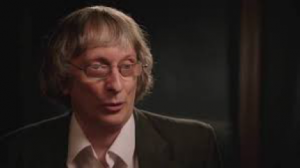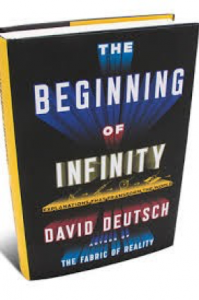World-Changing
Genius is a word that we attribute too much to people these days. In an age of social media, the ‘Me Generation’ and the dominant role TV and the Internet play in the fabric of our social interactions and things we do, we tend to — as a species — make more out of the uncommon than we should. From Neymar’s latest wonder goal to the newest technological advances that are hailed as ‘sublime’ ‘world-changing’ and ‘revolutionary’ in publications like Wired and TechCrunch.
And that’s all right, sometimes. In fact, we need such lifts, news that elevates us and makes us feel happy about what we can achieve when we put our minds to it.
But a lot goes unnoticed. And more importantly, a lot of people go unnoticed that have done something, created a thing that has pushed us towards a better understanding of who we are and what we can accomplish.

That is why I will now embark on a series of short articles about the most influential people in the history of quantum theory/computing; and, more importantly, those minds that have played the biggest role in shaping what quantum computing (QC) has become: a multimillion-dollar industry that will, no doubt, play a key role in humanity’s destiny over the next century.
Anybody at home with the history of science, and especially quantum theory, will have heard of David Deutsch.
Oxford Genius
Born in Haifa, Israel, in 1953, Deutsch moved to the UK as a young child where he was to turn into one of the most influential quantum physicists of the century. As a man with an unusually fervent mind and peculiar personal habits, his 1985 paper — which went into great detail on quantum algorithms until it was developed further upon (with the help of Richard Jozsa) to formulate what is known as the ‘Deutsch-Jozsa algorithm’, a theory that changed the way quantum computers have developed.
‘The most important application of quantum computing in the future is likely to be a computer simulation of quantum systems, because that’s an application where we know for sure that quantum systems in general cannot be efficiently simulated on a classical computer. This is an application where the quantum computer is ideally suited.’
— David Deutsch, Interviewed at Wired Magazine, 2007
His academic career started at Cambridge where he took his first degree in 1975. After that, he moved to Oxford to complete his doctorate in mathematical physics under the watchful eye of his supervisor, Dennis Sciama. Oxford led him to Austin, Texas, and the University of Texas, completing his Ph.D. studies there.

In 1997 he published The Fabric of Reality, which expanded upon his hypothesis of quantum mechanics and how he views reality as a phenomenon. Additionally, he discusses in the book his theory of the multiverse (already formulated by American physicist Hugh Everett III in his ‘many-worlds interpretation (MWI) of quantum physics and his all-expansive, ambitious theory he calls the ‘Theory of Everything’ (TOE).
Heavy going for the uninitiated, but if you can get to the nitty-gritty of his beliefs, you start to unravel why his theories form an important cornerstone to the ongoing research and advancements in QC.
What is more important in all this, however, is how his ideas have unintentionally helped QC develop. What Deutsch had originally set out to do was only to prove his multiverse hypothesis was watertight enough to survive the deep scientific interrogation he would be up against from his intellectual peers and detractors.
‘Quantum computation […] will be the first technology that allows useful tasks to be performed in collaboration between parallel universes’
— David Deutsch, The Fabric of Reality
What he actually did, in fact — with the help of Everett, Bryce DeWitt and Feynman etc — was to set the ball rolling in a technological sense.
There is no reason for me to go into Deutsch’s proof of the multiverse, which he expands further in another book (2011’s The Beginning of Infinity), as I am neither qualified to nor wholly confident I could do it justice. Yet, in essence, it includes half-silvered mirrors and the magical quality of photons.
All spooky stuff that Einstein was frightened of.
The Outsider
But leaving the world’s greatest mind to tremble in fear and loathing, it is important to state that this highly intelligent, soft-spoken Oxford professor with a fashion sense and hairstyle I neither like nor advocate, should be held in higher esteem than he actually is. His lack of — if I can say it — a need to grab the microphone and ram his beliefs down other people’s throats (though he does take the stage from time to time) is highly admirable. He reminds me to a degree of David Icke, the former BBC TV presenter in the 1970s and 1980s who quit a good career as a journalist to go off espousing his conspiracy theories, all to the ridicule of the British public.

Like Icke, Deutsch is a mocked prophet in some quarters for his tenacity and conviction regarding the multiverse, which seems counterintuitive. However, by just watching him in the Dutch documentary programme Noorderlicht from 1995, it is obvious how eloquently and clearly he can explain difficult topics such as quantum mechanics and his multiverse hypothesis.
So, please, let’s hear a round of applause for this unique human being, one of the founding fathers of quantum computing!
















